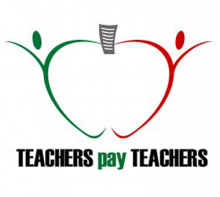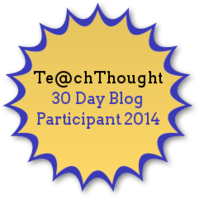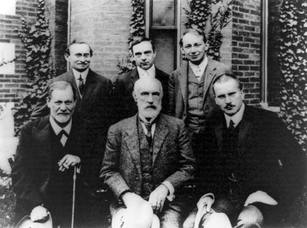
I was looking back at my blog posts and I realized that I never mentioned that I was accepted to the APA-Clark University Workshop for High School Teachers! It just so happens that the conference took place this week from 7/22-7/24 and it was AMAZING!!! Twenty-five high school psychology teachers were selected from throughout the nation (16 states were represented) to take part in the 9th annual conference in Worcester, Massachusetts. Did I mention that it was amazing?!?
The conference was a combination of presentations from professors at the forefront of psychological research and from master high school psychology teachers. The high school teachers coordinated the activities and materials they shared with the topics the professors presented. For example, Dr. Marianne Wiser (Clark University) discussed how she approaches her sensation and perception course. She discusses each sense in order of complexity from least complex to most complex: pain, touch, taste, smell, hearing, and vision. The master teachers then gave illustrations of activities, videos, web-links, and handouts to use in class.
The most engaging presentation was given by Dr. Champika K. Soysa (Worcester State University) who spoke about children experiencing PTSD in Sri Lanka due to war and the 2004 tsunami. The stories were heartbreaking but the discussion about how sociocultural characteristics can impact perceptions of mental illness was thought provoking. The presentation which I think will have the greatest impact on my teaching was from Dr. Victor Benassi (University of New Hampshire). He shared his studies of how the single most effective means to increase student test scores is by taking a quiz---even if the student doesn’t get the correct answers to the quiz prior to taking the test. The best kind of quiz to give uses a variety of types of questions including open-ended and multiple choice questions. Quizzing is more beneficial than rereading the text, making flash cards, or even being given the test questions prior to the test!
Beyond the seminars that were given, I greatly enjoyed our tour of the Psychology department at Clark. The research that is taking place at Clark is diverse and timely. Topics include comparison of adjustment for families who adopt children from both traditional and homosexual couples, correlation between parenting styles and student academic success, and Latino men’s perceptions about seeking treatment for mental illness. I left the tour feeling excited and a bit jealous of the grad students who are taking part in these studies.
The best part of the conference, however, was having the opportunity to rub shoulders with some wonderful, knowledgeable, and dynamic high school psychology teachers. I got to meet in person two members of the weekly twitter chat #psychat: Amy Ramponi (@AmyRamponi) and Jennifer Schlict (@jenslish). Jennifer also maintains the blog “Using Pop Culture in High School Psych Class” (http://psychteach.com/). Amy will be taking over as moderator of #psychat in August 21st discussing “Kicking Off Your Psych Class”, Jennifer will follow on 8/28 with “Tech Integration in the Psych Classroom”. I will be moderating my first ever twitter chat on 9/4 discussing “Unit Projects in Psychology”. I can’t tell you how excited I am about having the ability to take part in something like this!
The other people that I met at the conference were equally influential in making this a terrific conference. Dr. Lee Gurel’s generous donations made this conference (and the last 8 conferences) possible. Dr. Gurel is a Worcester native who graduated from Clark in 1948 and still remembers how influential his psychology professors, particularly Dr. John E. Bell, were in guiding him and believes that high school students deserve the same opportunity for inspiration and guidance. Dr. Nancy Budwig (Clark University), Caitlin Crowley and Emily Leary Chesnes (APA) were also instrumental at ensuring that conference attendees were able to get the most out of the conference.
I would certainly recommend the conference to any high school psychology teacher. Although I was one of the only participants that does not teach AP level psychology it was a great experience. Applications are typically due in April so be on the lookout on the APA web site in late winter. If you are interested in any of the materials that I received from the conference, please feel free to email me at [email protected].
The conference was a combination of presentations from professors at the forefront of psychological research and from master high school psychology teachers. The high school teachers coordinated the activities and materials they shared with the topics the professors presented. For example, Dr. Marianne Wiser (Clark University) discussed how she approaches her sensation and perception course. She discusses each sense in order of complexity from least complex to most complex: pain, touch, taste, smell, hearing, and vision. The master teachers then gave illustrations of activities, videos, web-links, and handouts to use in class.
The most engaging presentation was given by Dr. Champika K. Soysa (Worcester State University) who spoke about children experiencing PTSD in Sri Lanka due to war and the 2004 tsunami. The stories were heartbreaking but the discussion about how sociocultural characteristics can impact perceptions of mental illness was thought provoking. The presentation which I think will have the greatest impact on my teaching was from Dr. Victor Benassi (University of New Hampshire). He shared his studies of how the single most effective means to increase student test scores is by taking a quiz---even if the student doesn’t get the correct answers to the quiz prior to taking the test. The best kind of quiz to give uses a variety of types of questions including open-ended and multiple choice questions. Quizzing is more beneficial than rereading the text, making flash cards, or even being given the test questions prior to the test!
Beyond the seminars that were given, I greatly enjoyed our tour of the Psychology department at Clark. The research that is taking place at Clark is diverse and timely. Topics include comparison of adjustment for families who adopt children from both traditional and homosexual couples, correlation between parenting styles and student academic success, and Latino men’s perceptions about seeking treatment for mental illness. I left the tour feeling excited and a bit jealous of the grad students who are taking part in these studies.
The best part of the conference, however, was having the opportunity to rub shoulders with some wonderful, knowledgeable, and dynamic high school psychology teachers. I got to meet in person two members of the weekly twitter chat #psychat: Amy Ramponi (@AmyRamponi) and Jennifer Schlict (@jenslish). Jennifer also maintains the blog “Using Pop Culture in High School Psych Class” (http://psychteach.com/). Amy will be taking over as moderator of #psychat in August 21st discussing “Kicking Off Your Psych Class”, Jennifer will follow on 8/28 with “Tech Integration in the Psych Classroom”. I will be moderating my first ever twitter chat on 9/4 discussing “Unit Projects in Psychology”. I can’t tell you how excited I am about having the ability to take part in something like this!
The other people that I met at the conference were equally influential in making this a terrific conference. Dr. Lee Gurel’s generous donations made this conference (and the last 8 conferences) possible. Dr. Gurel is a Worcester native who graduated from Clark in 1948 and still remembers how influential his psychology professors, particularly Dr. John E. Bell, were in guiding him and believes that high school students deserve the same opportunity for inspiration and guidance. Dr. Nancy Budwig (Clark University), Caitlin Crowley and Emily Leary Chesnes (APA) were also instrumental at ensuring that conference attendees were able to get the most out of the conference.
I would certainly recommend the conference to any high school psychology teacher. Although I was one of the only participants that does not teach AP level psychology it was a great experience. Applications are typically due in April so be on the lookout on the APA web site in late winter. If you are interested in any of the materials that I received from the conference, please feel free to email me at [email protected].
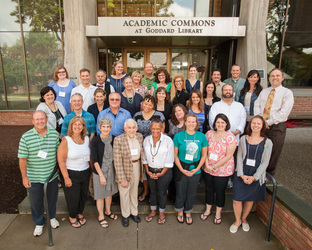
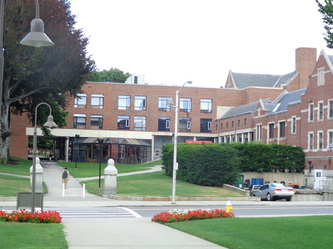
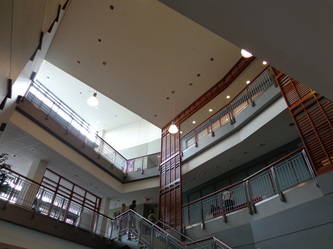
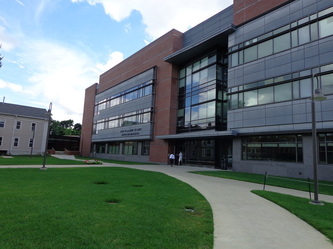
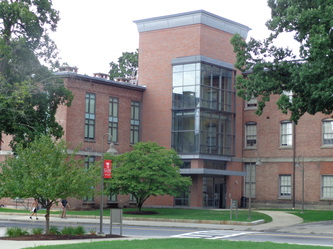
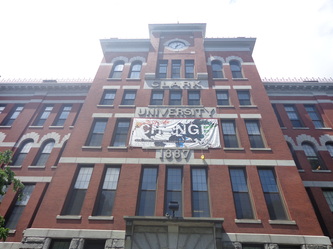
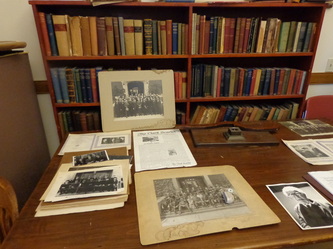
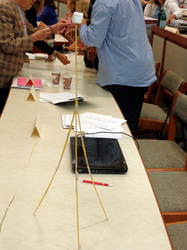
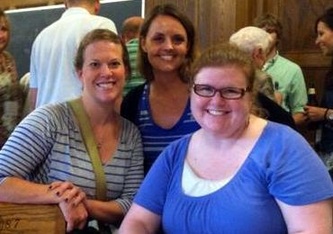
 RSS Feed
RSS Feed
